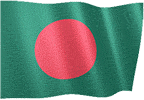Meteorological information and their timely and real-time delivery is of utmost concern to the region of Asia Pacific. This region covers countries many of which experience the typical Tropical weather systems - especially Tropical cyclones and monsoons (both summer and winter) - and some other the mid latitude weather phenomena. Agenda 21 concerning safeguard of Global environment is also of great relevance for many countries of this region, particularly issues related to Climate change, global warming, sea level rise, ozone depletion, etc. The understanding of meteorological information has been historically connected to our aspiration and, ability to predict the quantitative aspects of the monsoon, so that it is possible for us to judiciously plan and manage resources. At present we realize better than ever that such an ability is obtainable only with the use of synoptic and real time information, which is what is the crux of satellite meteorology. CSSTEAP conducts a comprehensive post graduate training programme on the subject with a complete treatment of principles, applications and prospects of using the technology to solve grass-root problems of nature concerning state and dynamics of atmospheric processes in the region. The operational satellite data available in the region namely, INSAT, METEOSAT, GMS & NOAA, are used extensively during the training course. The recent advances in microwave remote sensing for meteorology is given special stress by using the data from Oceansat-1, ERS, DMSP, SSM/1 etc. The students use state of art General Circulation Models available with centre. The course is conducted at Space Applications Centre which is a premier institution for satellite meteorology applications. SAC is well equipped with earth stations to receive the satellite data besides a strong laboratory support for experimental studies. In addition to all these, CSSTEAP, through co-ordination at SAC, also obtains support from India Meteorological Department and many other meteorological centres spread over the country with their modern facilities, as well as the overseas experts. By actively participating in the programmes and objectives of the World Meteorological Organization (WMO) or through the results of its efforts in the region, the Centre stands to gain in general and enrich its training programmes in particular.
All Educational Programmes are conducted in English. In principle, students are expected to be sufficiently fluent in English, but facilities for improving their English Languages skills are made available to those students who want to avail of this facility, upon their arrival on campus. The courses are taught in classroom environments with the use of modern teaching methods and tools, and also include multimedia tutorials for self - study. Practical are given in the laboratories and skill development environments of the DOS institutions.
For each courses there are course directors who overall guides and frame the programme. There are course coordinators who assist for day to day educational programme.



















